The main objective of the Architectural Analysis course of 2016 was the research of several historically loaded locations in the city of Berlin by literature study and critical spatial analysis. Five different locations were explored, which were relevant for the pre-war, war- and post-war periods of the city: the ‘Pariser Platz’, the ‘Potsdammer Platz’, ‘Berlin Mitte’, ‘Checkpoint Charlie’ and the ‘Lindenstrasse’. All these locations form important marks in the cultural, individual and collective memory of the city and its inhabitants. In their physical appearance, the five loci represent the structural changes that the city has undergone in the pressure of the fierce ideological, economic and cultural transitions in the 20th century.
In the course the postwar restoration of the damaged morphology of the city, also known as ‘Critical Reconstruction’, formed a particular point of interest. That approach was mainly based on the analogical point of view that the reconstruction of the city should have a relation with its historical legacy. Although several of the spatial transitions that were performed did lead to fundamental and sometimes drastic modulations of the original urban layouts of the loci and their characteristic buildings, some genuine traces of the past are still maintained. The reinterpretation of these architectonic traces was the key object of the course performed by very accurate spatial analysis.


